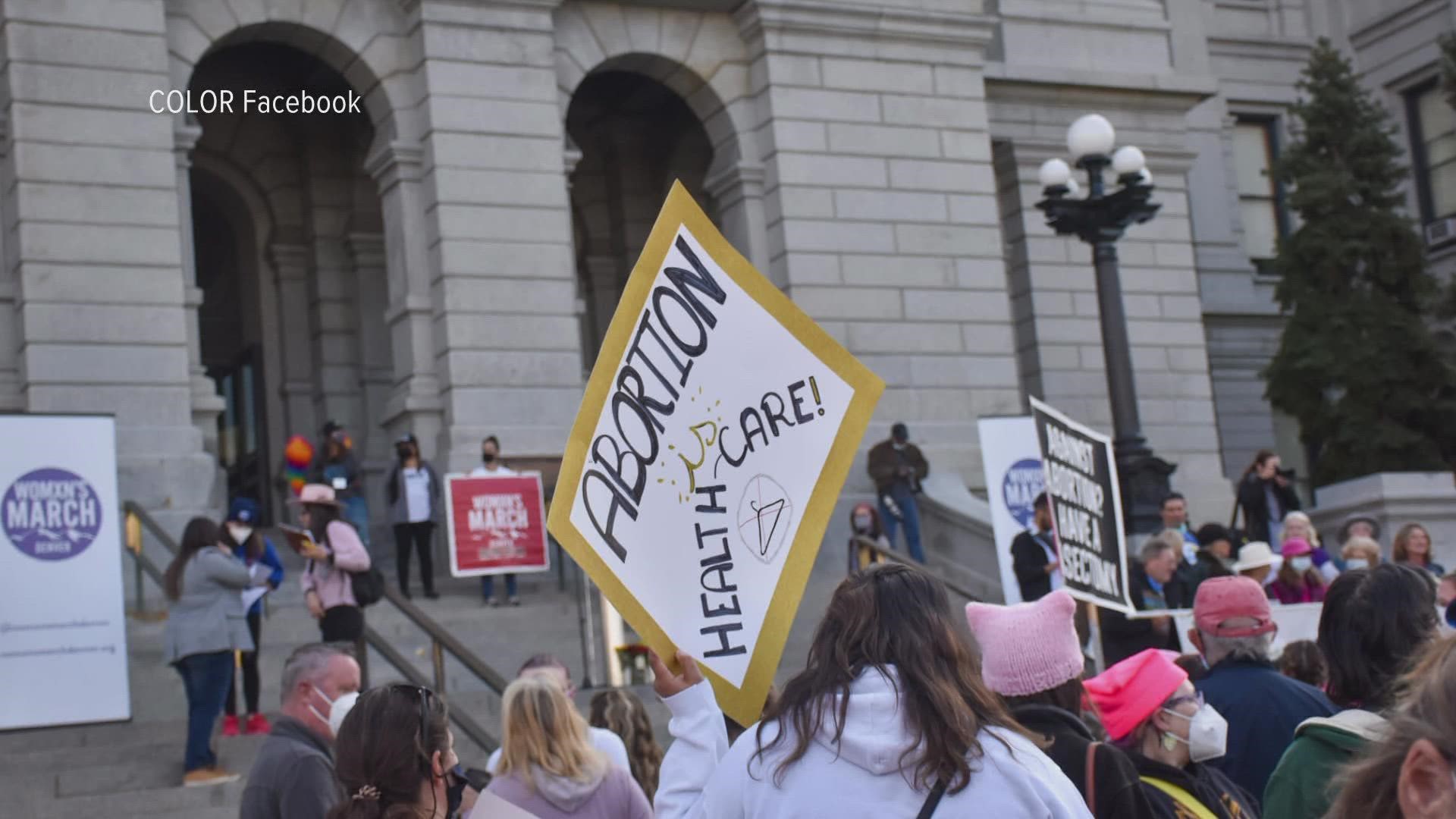DENVER — Access to the abortion pill will soon be much easier. The Food and Drug Administration (FDA) will now allow pharmacies and mail-order companies to offer the medication.
There are a number of mandated safety requirements before prescribers can distribute the pill. Pharmacies that dispense the pill also need to go through a certification process.
Both CVS and Walgreens have announced they plan to go through that process and offer the medication in states where abortions remain legal.
According to NBC News Latinas are the largest group of women of color affected by state abortion bans and restrictions.
NBC reports, more than four in 10 Latinas of reproductive age live in the nearly two dozen states where officials are working to make abortion inaccessible.
América Ramirez, Program Director for the Colorado Organization for Latina Opportunity and Reproductive Rights (COLOR), spoke to 9NEWS about the impact this expansion of accessibility will have on the Latino community.
9NEWS: For people who don't know, can you explain what COLOR does?
Ramirez: Yea, so COLOR is a nonprofit. We’ve been in Colorado for about 25 years so 2023 marks 25 years of our work where we do a lot of political and advocacy work within the state to really elevate the voices and experiences of the Latinx community here in Colorado.
It’s really important for us to look at the diaspora of Latinx folks here within the state, acknowledging that they’re coming from different places. They might have lived on this land for many years, they might be immigrants or migrants and folks are having different experience when it comes to not just reproductive health and reproductive rights, but also obtaining reproductive justice. And that’s the work that we do, is ensuring that folks can really make the best decisions for themselves and their families when it comes to all forms of justice.
How does a lack of abortion access impact the Latinx community?
Ramirez: I mean there’s so many different components. There’s language barriers, there’s culture barriers that when accessibility isn’t available, it makes it that much harder, right, to talk about stigmatization that comes with abortion, right? Knowing that abortion is a form of healthcare becomes more challenging with these added layers of cultural controversy, religious controversy, not being able to know the proper language to talk about it in Spanish and then also these complexities that come with our families as well.
Being able to have childcare and being able to access the services that we need to even prevent pregnancy and on top of that being able to terminate a pregnancy. So there’s just so many different barriers that exist and if folks live in rural areas we know that a lot of Latinos or Latinx folks live within like rural regions or work in agriculture of hospitality in the mountains in the region and so it becomes a lot more difficult to access those service in those rural areas as well.
Does COLOR consider the latest news from the FDA regarding the abortion pill a win?
Ramirez: This is a huge win in COLOR’s book. We talk a lot about accessibility being huge, especially when we’re talking about like the pro-choice movement. We acknowledge that there is no choice if access isn’t available right? So, for us to be able to expand the availability, the access ability of the abortion pill to our constituents; to the folks that live here in Colorado, to folks that live in the state where abortions remain legal, as it should be, it’s really important, it’s a huge win.
It also really outlines the fact that abortion is a form of healthcare and it’s being treated as such so for us this is I mean, we’re getting to exactly where we need to be, really.
This allows either these retail pharmacies or brick and mortar mom and pop pharmacies to be able to supply this incredibly resource health care to our communities and be able to say more folks can also receive it by mail.
The potential is folks will be able to receive the medication in a more timely fashion because we know the abortion pill needs to be taken with a number of weeks and it also destigmatizes the fact that if you are able to get it at your local pharmacy instead of having to go all the way into Denver or all the way into the nearest big city. It also normalizes the fact that it’s just like receiving any other medication because this pill is safe and effective and we’ve known that and so know that the FDA has lead this way for us it kind of really puts a stamp on that abortion is healthcare.
Do you believe there is more work to do?
Ramirez? We’ve done a lot of work here in the state of CO to codify abortion as a right. Given this last year in 2022 we were able to pass the Reproductive Health Equity Act which was really huge in a way to codify that here in the state.
So this is one big step, but there’s just so many other things when we talk about those barriers that we want to eliminate to ensure that our communities truly have that access and everything they need and deserve to actually make those best decision for themselves and not really have to think about whether they can afford those things whether they have the time for it, all of these other barriers that might exist. We still have a fight and work ahead of us but we’re excited to bring our community with us to continue that fight.
SUGGESTED VIDEOS: Mental Health & Wellness

